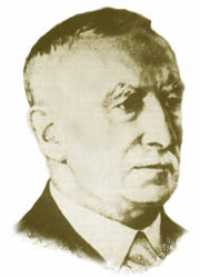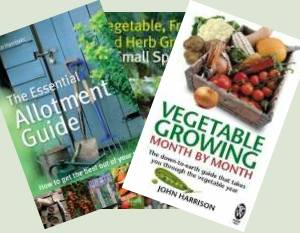Learning from the Past
I’ve finally got around to properly reading one of the seminal books of the organic farming movement. Written in 1940, An Agricultural Testament by Sir Albert Howard draws in large part on his experience in the West Indies, Africa and India.
I’m reading the 1949 edition in a new paperback available from Amazon. It’s obviously been printed from a scan and there are a few typos. Still, nothing too irritating and you can usually figure out what a word actually was.
Sir Albert Howard was a prolific author and advocate of organic, sustainable farming methods. He had qualifications in botany and natural sciences but his works were rooted in practical methods learned from his work and observations over the previous 40 years.
He provided advice to commercial growers such as tea plantations on improving yields and protecting their investment by moving to systems that were sustainable. However, not all his methods are easily translated to modern agriculture.
For a start transport and much farm work was animal powered. Horses and oxen mainly. These animals certainly earned their corn by their efforts but also their waste was part of the basis of soil fertility. As he points out:
The replacement of the horse and the ox by the internal combustion engine and the electric motor is, however, attended by one great disadvantage. These machines do not void urine and dung and so contribute nothing to the maintenance of soil fertility. In this sense the slaves of Western agriculture are less efficient than those of ancient Rome.
The reference to Rome is in the context of a discussion on the demise of the Roman empire and how this was hastened by changes in agricultural practice as slaves became more common in Roman society. An Agricultural Testament is a fascinating and challenging book, Sir Albert Howard often comes at his points from unexpected directions.
The book also references his 1931 work The Waste Products of Agriculture — Their Utilization as Humus which is available to read online here
Farmers of Forty Centuries by Franklin Hiram King
Although he cites a number of works, it’s apparent that the 1911 work Farmers of Forty Centuries by Franklin Hiram King, had a great influence. This is available to read online here (PDF) Farmers of Forty Centuries discusses how the farmers of the far east and China were able to produce an abundance of crops from the same land for forty centuries. The answer is twofold:
Farming skill and a virtuous circle where all waste products were returned to the land (often after composting). When I say all wastes, I’m including the wastes of the end user of agriculture, people.
As King says:
While the ultra−civilized Western elaborates destructors for burning garbage at a financial loss and turns sewage into the sea, the Chinaman uses both for manure. He wastes nothing while the sacred duty of agriculture is uppermost in his mind. And in reality recent bacterial work has shown that faecal matter and house refuse are best destroyed by returning them to clean soil, where natural purification takes place.
This theme was picked up by Howard with a discussion of the waste of human manure. This is produced then mixed with a large volume of water in our sewer systems before being processed. The residues were available for use as fertiliser but much depleted in nutrients. These nutrients ended up then as now in rivers and the sea where they can cause problems like algal blooms and eutrophication.
Sewage sludge is still utilised as an agricultural fertiliser but nowadays there are serious concerns as the nature of our waste has changed. We flush and forget, pour down a drain and think no more about it. If it was just our human waste and paper that would be alright but harmful and persistent chemicals like dioxins and PCBs may be in the sludge.
However, if we are to achieve genuinely sustainable farming the way we handle our own waste needs to be seriously addressed. It’s strange to think of that which we flush away as being valuable but it is.
Mycorrhizal Fungi
About ten years ago, I began to come across a number of articles and discussions of the benefits of mycorrhizal fungi. At first I thought this was probably another fad that would be forgotten in a few years until I realised the RHS were promoting it. Now, having read more on the subject and trialled the benefits of mycorrhizal inoculants when planting fruit bushes, I’m completely sold on the benefits. Thinking this was a fairly recent discovery, I was surprised to find Howard discussing the benefits of mycorrhizal fungi in farming back in 1940.
Simply put, the fungi work with plant roots to extract nutrients from the soil for the benefit of both.
Compost versus Chemicals
My experience as a gardener has convinced me that compost is usually gives superior results to just using artificial fertiliser. Incidentally I’m including animal manure in the term compost.
I’ve always assumed this was due to compost providing a wide range micronutrients and food for micro-organisms. Obviously composts do this but Howard contends the benefit is largely due to composts / humus enabling mycorrhizal growth. Remember he was a Mycologist as well as Agricultural Advisor in his time.
This actually makes a lot of sense to me. Whilst artificial fertilisers will usually generate additional growth, the results are not as noticeable in humus rich soils as in depleted soil.
Importance of Animal Residues in Composts
Once again, a point made by Howard resonates with me. He is adamant that the most effective composts are those made from a mixture of animal and vegetable wastes. I’ve bought in volumes of compost made from green waste in the past. Whilst this has benefited the soil it lacks body. On the other hand, well rotted manure has plenty of body but you can over use it. Compost made from both animal and vegetable waste always seems to me to give the best and most long-lasting results.
Prophetic
His final chapter resonates now that scientists are warning of soil depletion. The claims that we may have only sixty harvests left are, I believe, a bit overwrought. There are proven methods of regenerating the soil and farmers are beginning to implement them.
Howard was discussing soil degradation and erosion before most of us were born.
Farming has become unbalanced. The gap between the two halves of the wheel of life* has been left unbridged, or it has been filled by a substitute in the shape of artificial manures. The soils of the world are either being worn-out and left in ruins, or are being slowly poisoned. All over the world our capital* is being squandered. The restoration and maintenance of soil fertility has become a universal problem.
*The wheel of life is the virtuous circle of growth and decay. By capital, Howard means the value of the soil not monetary expense.
Conclusion
I wish I’d made the time to read this before now. As well as being informative, it’s enjoyable on many levels. Yes, it’s a work of its time but that adds to the interest. If you ignore references to countries that no longer exist and an empire dissolved, it could have been written today.





What a coincidence: not two hours before reading your article I had ‘dog-eared’ page 159 in ‘Entangled Life’ by Mervin Sheldrake where he references Howard. His amazingly accurate insights on mycorrhizal associations are only now been validated by science and his forecasts of soil degradation are now clear to all. Sheldrakes book is equally astonishing and should make us all think hard about what we do to our patches of soil.